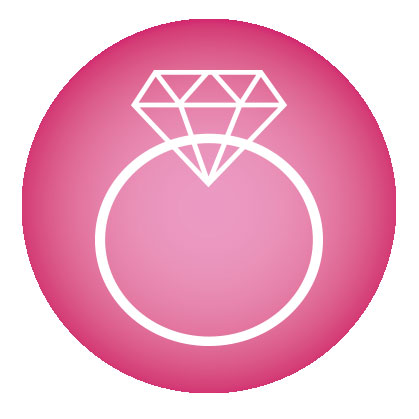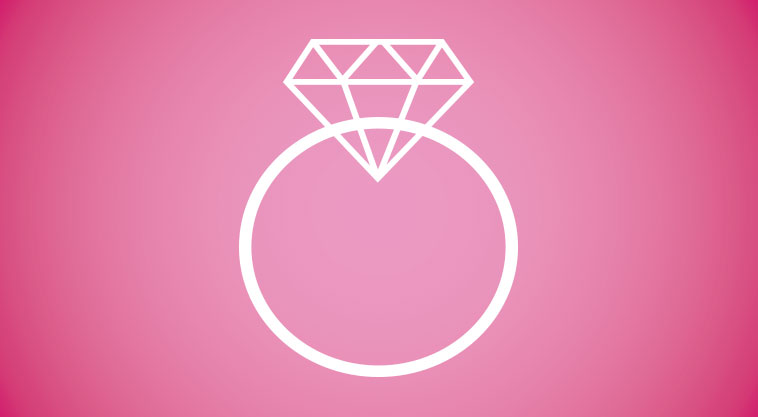Tell Her She’s Too Overwhelming?

Feedback that causes more good than harm

I
’m in the most uncomfortable situation and I don’t know what to do. I set my friend up with one of my cousins and they went out twice. I know she really liked him and was crushed when he said no. She said the date went really well, the conversation flowed, and the time flew. So she was totally shocked by his response. She confided that this has happened to her several times and she’s at a loss for why.
I’m not at a loss. I had a hunch, and my cousin confirmed, that boys find her overwhelming. He said she came on very strong, had a lot of opinions, and was just “too much.” What am I supposed to do? I love this friend. Yes, she’s opinionated and bubbly, but that’s what her friends love about her. I feel like if I tell this to her, she’ll be so hurt. And what can she do? It’s who she is. On the other hand, how can I not share this information if it can help her become a better dater?
Want to Help, Not Hurt
Dear Help Not Hurt,
T
hat’s quite a pickle you’re in. It doesn’t seem like there’s any way to give over this information without hurting your friend. You can take the risk, but it’s questionable whether she’ll be able to make use of it.
Psychology has given us a whole slew of neutral vocabulary words intended to protect our egos, but every fragile self knows that “feedback” is just another name for “criticism.” And no matter how gently we couch it, it still hurts to be told that who we are is not good enough for somebody, and certainly for several somebodies.
This is probably the most painful part of dating. Suddenly, some stranger gets to make a judgment about whether I’m good enough. It’s like being in the Olympics of relationships — I put my best foot forward and someone holds up a sign: 6.5. Nice try, but not enough. And what confounds this is that who I am may not work for this person, but it may be perfect for someone else.
Furthermore, while each of us strives to grow and perfect ourselves, do we actually seek to change ourselves? Giving someone feedback that who they are isn’t desirable is intensely and acutely painful. In addition to being devastating, it’s also not particularly useful. What do they do with that information? Start pretending to be someone they’re not? Besides being disingenuous, it’s hardly sustainable.
I feel the same way about feedback in an area that the person is already aware of. For example, there are few overweight people who don’t know this fact about themselves. In fact, they’re even aware that losing weight would probably make the road to dating smoother. So informing them of this fact is rarely enlightening. It’s mostly just painful.
So what’s a friend to do? In hilchos lashon hara the Chofetz Chaim notes that one of the great gifts that HaKadosh Baruch Hu gave us is that of friendship, because a friend will guide us and help us see our true selves and improve our behavior. How do we reconcile the intuitive feeling that we must do something as a friend, with the knowledge that providing hurtful feedback will be counterproductive?
I believe the answer lies in determining if the person’s behavior is authentically them. Is your friend actually as overbearing as her dates find her, or is she assuming a persona that she might think is endearing or captivating? Is she behaving from a place of anxiety, talking too much and too loudly to try to fill the inevitable silences?
If her behavior is inauthentic on some level, and is not serving her well, then your feedback actually carries a healing and empowering message: Go back to who you really are. That’s who people really want to see. There’s information she can use. By being true to herself, she will allow her behavior to reflect her true essence so that she can connect on a genuine level.
A caveat: We don’t need to air our whole selves on the first date. A little mystique goes a long way. There’s nothing wrong with being a toned-down version of who we are, and letting the other person see if they like that, before projecting ourselves in surround sound. Guide your friend as to how to present herself in a way that doesn’t intimidate dates the first time they meet.
That said, if this behavior is, in fact, who she is, it will — and should — gradually come out. Hiding her real self will not actually serve anyone in the long run. Even if she’s able to “fake it” long enough to get another few dates, what happens when the real her emerges? And as my grandmother a”h used to say, “Every pot has its lid.” There will be someone out there who will embrace and celebrate her effervescent self.
Kudos for being that good friend!
Hatzlachah,
Sara
(Originally featured in Family First, Issue 578)
Sara Eisemann, LMSW, ACSW, is a licensed social worker and a columnist for inshidduchim.com. She also lectures on topics related to relationships, personal development, and growth. She welcomes questions, comments, feedback, and interaction at inshidduchim@mishpacha.com.
Oops! We could not locate your form.


